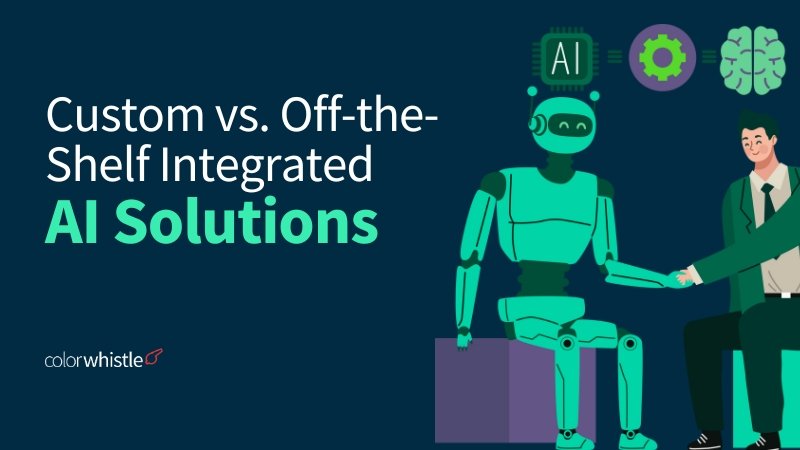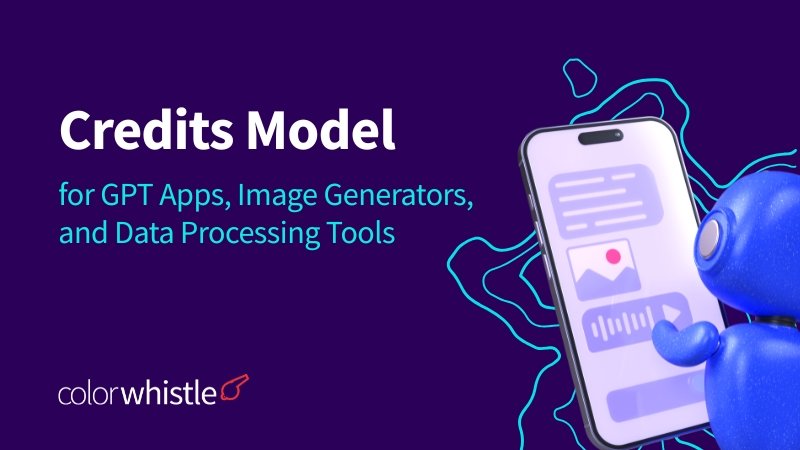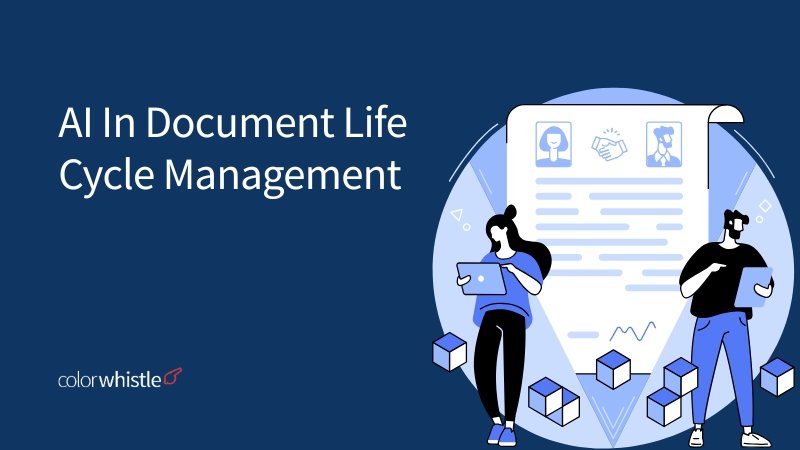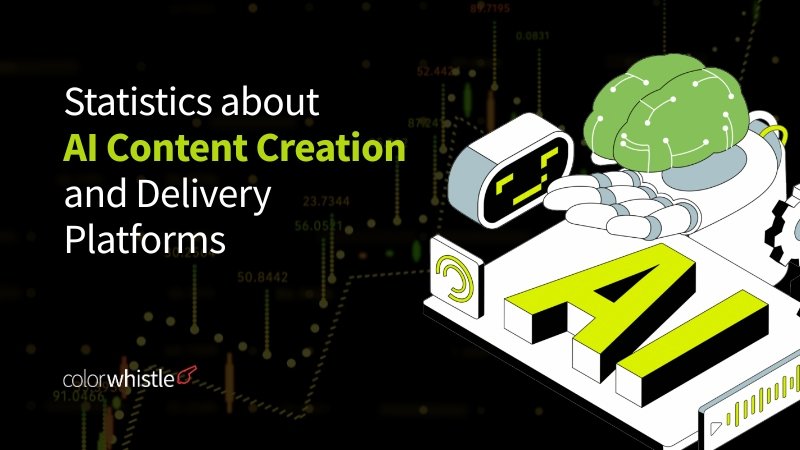In the rapidly evolving landscape of artificial intelligence (AI), businesses are increasingly integrating AI into their workflows to enhance efficiency, decision-making, and customer experiences. Partnering with an AI integration company can be a strategic move, especially when deciding between custom AI solutions and off-the-shelf options. Each approach offers distinct advantages and challenges, and the optimal choice depends on various factors, including specific business needs, scalability requirements, and resource availability.
TL;DR
- This blog is suitable for Mid-to-large enterprises evaluating AI integration to optimize business workflows and improve scalability
- Businesses are integrating AI to streamline operations and enhance efficiency.
- Two main options: Off-the-Shelf AI and Custom AI Solutions.
- Off-the-Shelf AI offers quick deployment, low cost, ease of use, and proven reliability.
- Downsides include limited customization, scalability issues, and data privacy risks.
- Custom AI solutions are fully tailored, scalable, secure, and provide a competitive edge.
- However, they require higher investment, development time, and skilled resources.
- Choice depends on business needs, budget, time-to-market, long-term goals, and available expertise.
Understanding Off-the-Shelf AI Solutions
Off-the-shelf AI solutions are pre-built, ready-made AI tools developed by third-party vendors. These solutions are designed to address common business problems and are often available as Software-as-a-Service (SaaS) products. They can be quickly integrated into existing systems, offering immediate functionality without the need for extensive development.
Advantages of Off-the-Shelf AI Solutions
- Quick Deployment: These solutions can be implemented rapidly, enabling businesses to start leveraging AI capabilities without significant delays.
- Cost-Effective: With lower upfront costs, off-the-shelf solutions are financially accessible, especially for small to medium-sized enterprises.
- Proven Reliability: Developed by experienced vendors, these solutions have been tested across various scenarios, ensuring stability and performance.
- Ease of Use: Designed with user-friendly interfaces, they require minimal technical expertise to operate.
Limitations of Off-the-Shelf AI Solutions
- Limited Customization: These solutions may not align perfectly with unique business processes, leading to potential inefficiencies.
- Scalability Constraints: As businesses grow, off-the-shelf solutions may not scale effectively to meet increasing demands.
- Data Privacy Concerns: Using third-party solutions may raise issues regarding data security and compliance with regulations.
Also Read
Exploring Custom AI Solutions
Custom AI solutions are bespoke systems developed to meet the specific requirements of a business. These solutions are built from the ground up, considering unique workflows, data sets, and objectives.
Advantages of Custom AI Solutions
- Tailored Functionality: Custom solutions are designed to fit seamlessly into existing workflows, addressing specific challenges effectively.
- Enhanced Scalability: Built with future growth in mind, these solutions can evolve alongside the business, accommodating increasing complexity.
- Competitive Edge: By leveraging proprietary data and processes, custom AI can provide unique insights and advantages over competitors.
- Data Control: Businesses maintain full control over their data, enhancing security and compliance.
Challenges of Custom AI Solutions
- Higher Initial Investment: Developing a custom solution requires significant financial resources and time.
- Longer Development Time: Building a solution from scratch involves extensive planning, development, and testing phases.
- Resource Intensive: Requires access to skilled personnel and ongoing maintenance to ensure optimal performance.
AI in Workflow Automation: Transforming Operations
AI is reshaping business workflows through automation in key functions like customer support, marketing, finance, and logistics. Tools like AI chatbots, AI agents, and NLP-powered systems automate routine queries, while machine learning models forecast trends and behaviors. AI integration improves operational efficiency, reduces manual errors, and frees human talent for strategic tasks.
For example, AI platforms like Salesforce Einstein and HubSpot use ready-made AI tools to automate CRM workflows, while companies like Netflix build custom AI models for hyper-personalized content recommendations. This distinction illustrates the strategic value of choosing the right AI solution for your workflow.
AI Development Lifecycle: What Goes Into a Custom AI Solution?
Developing a custom AI solution involves several stages:
Discovery & Planning: Identifying business needs, specific goals, and existing workflows.
Data Collection: Gathering structured/unstructured data relevant to the use case.
Model Design: Choosing the right AI model (e.g., NLP, computer vision, predictive analytics).
Training & Testing: Feeding data into the AI model and validating its performance.
Deployment: Integrating the solution into business systems.
Maintenance: Ongoing tuning, monitoring, and scaling.
Technologies involved include Python, TensorFlow, PyTorch, and cloud platforms like AWS, GCP, or Azure.
Comparative Analysis: Custom AI vs. Off-the-Shelf AI
| Feature | Off-the-Shelf AI Solutions | Custom AI Solutions |
|---|---|---|
| Deployment Time | Rapid implementation | Extended development period |
| Cost | Lower upfront costs | Higher initial investment |
| Customization | Limited to vendor-provided options | Fully tailored to business needs |
| Scalability | May face limitations as business grows | Designed to scale with business expansion |
| Data Control | Data handled by third-party vendors | Full control over data and security |
| Maintenance | Vendor-managed updates and support | Requires in-house or contracted maintenance |
| Integration | May require adjustments to fit existing systems | Seamless integration with current workflows |
| Competitive Advantage | Utilizes common algorithms and models | Leverages proprietary data for unique insights |
Making the Right Choice for Your Business
When deciding between custom and off-the-shelf AI solutions, consider the following factors:
- Business Needs: Assess whether your challenges are unique or common within your industry. Unique challenges may benefit more from custom solutions.
- Budget Constraints: Evaluate the financial resources available for AI development and maintenance.
- Time to Market: Determine how quickly you need the AI solution to be operational.
- Long-Term Goals: Consider the future scalability and adaptability requirements of your business.
- Technical Expertise: Assess the availability of skilled personnel to develop and maintain a custom solution.
Also Read
Conclusion
Both custom and off-the-shelf AI solutions offer valuable benefits for automating workflows and enhancing business operations. Off-the-shelf solutions provide a quick, cost-effective entry into AI, suitable for standard applications and businesses with limited resources.
Conversely, custom AI solutions offer tailored functionalities, scalability, and a competitive edge, ideal for businesses with unique challenges and the resources to invest in bespoke development. Careful evaluation of your specific needs, goals, and resources will guide you to the most appropriate choice for your AI integration strategy.
Stroll through our ColorWhistle pages to discover our tailored AI Integration services. Ping us or call us at +1 (919) 234-5140, and we’ll be on it like paint on a canvas! Our services are as unique as your business ,let’s make magic happen together!
What’s Next?
Now that you’ve had the chance to explore our blog, it’s time to take the next step and see what opportunities await!





